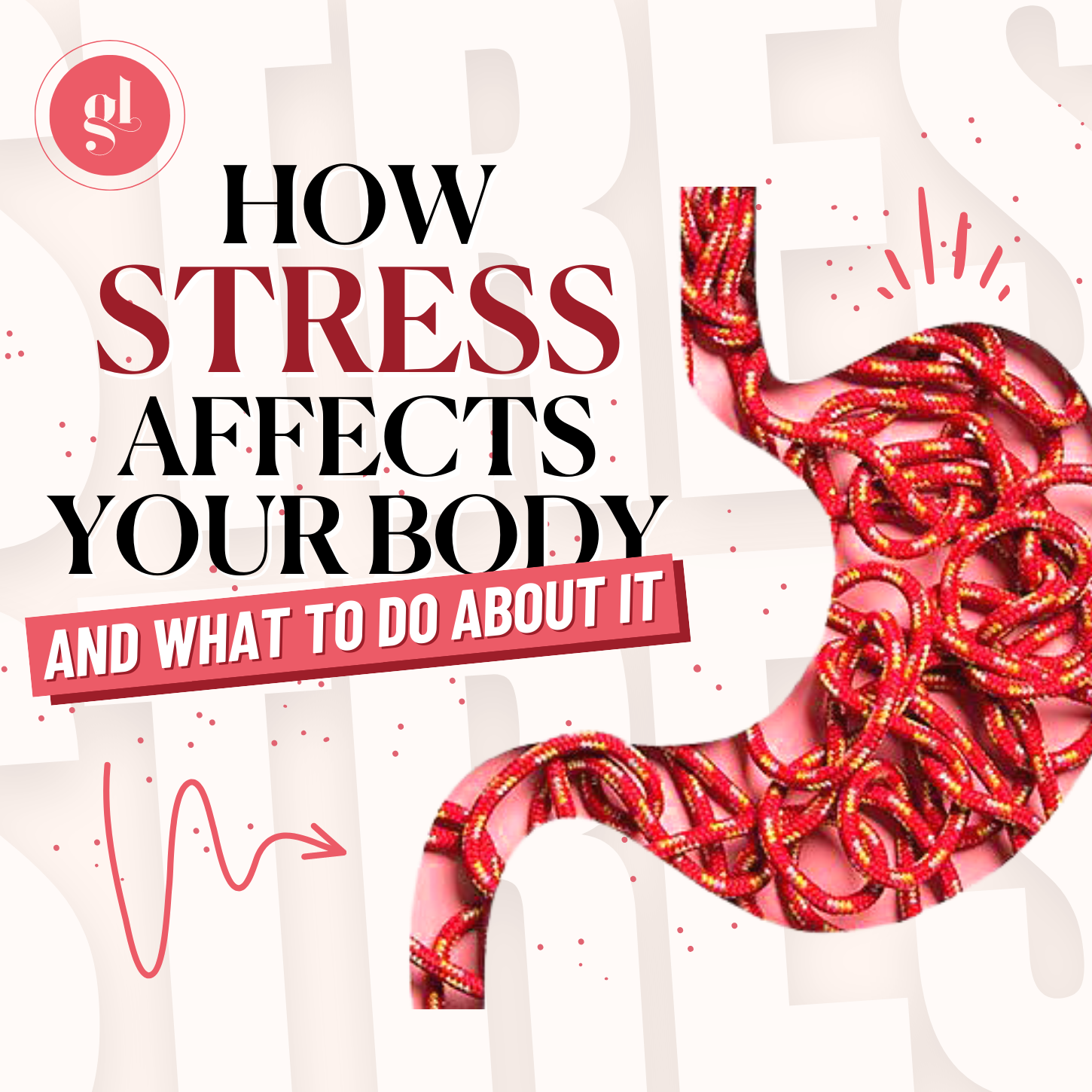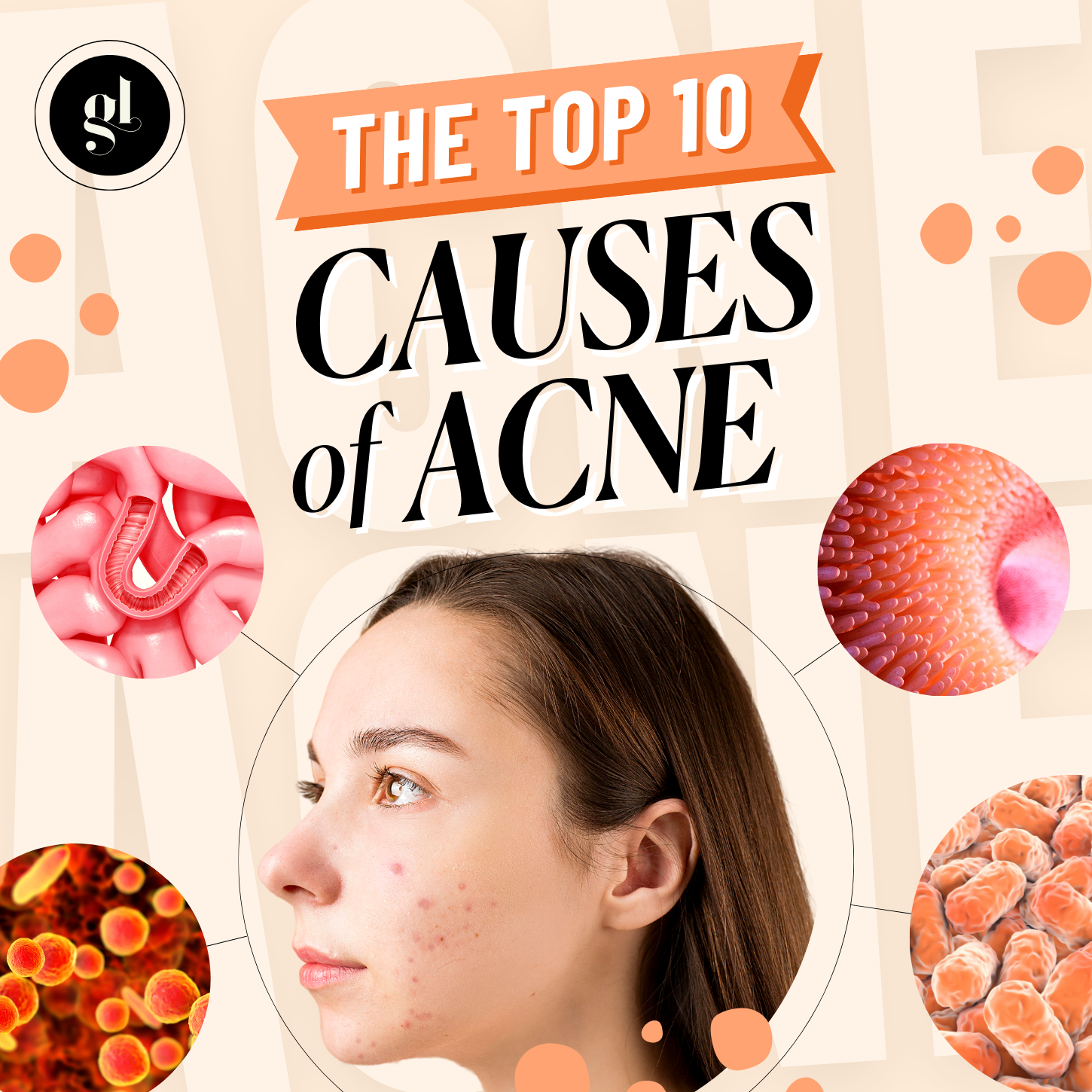There's a lot of talk about the gut-brain axis lately, and for good reason! It turns out that what's going on in our gut can have a huge influence on what is going on in our brains, and, on the flip side, what is going on in our brains, can also have an enormous impact on what is going on in the rest of our body.
In this video, we discuss the mind-body connection and how cortisol (our stress hormone) affects our gut health as well as our mental health.
We've also got some tips for reducing your cortisol levels and restoring balance. So watch now and learn how to take care of yourself from the inside out!
Trancript: How Stress Affects Your Body (And What To Do About It)
Sarah:
We harp on about the gut-brain axis quite a lot at Goodness Lover, but that’s because it is just so freaking important to our health. If you really want your health to be the best it can be, then understanding this mind-body connection is crucial.
Nicole Sachs:
The thing that people really need to understand when it comes to gut issues is the gut and the mind are inextricably connected. We can never heal the issues of the gut without looking at our mind-body world, without looking at the brain and the nervous system and the ways in which they are dancing with our gut at all times.
Sarah:
As you can see, this gut-brain connection is not something we’ve pulled out of a hat. More and more studies are accumulating that highlight the role that stress plays in our gut health and also the development of disease.
So in what ways does cortisol (our primary stress hormone) affect our health and more importantly, what can we actually do about it?
Dr. Carrie Jones:
Cortisol can really influence the function of the gut. Cortisol and its buddies, adrenaline, which is epinephrin and noradrenaline, which is norepinephrine. Can really cause a breakdown in our mucus layer. So in our intestines we have... It's a tube, right? It's a tube. And what protects the upper and lower and sidewalls is this layer of mucus that's the trap, nasty things that come through. We need this mucus layer. But over time, high stress, high levels of adrenaline, high levels of cortisol wear down the mucus layer. And now it could expose pieces, parts of your wall. And that leaves it more susceptible to attack, to infection, to things getting through that shouldn't get through. So the commonly used phrase is it can increase your risk for leaky gut.
Sarah:
Stress is one of the major triggers of leaky gut. I don’t want to stress you out more about it but this is not something to simply sweep under the carpet and ignore. Leaky gut, which allows pathogens, bacteria, toxins into your bloodstream, can elicit an immune response, increase inflammation and increase your risk of developing disease.
So when we are faced with a stressor and our body shifts into what we call the sympathetic nervous system state, our adrenal glands release cortisol and signal to our various organs to put certain processes on hold so we can deal with the stressor at hand.
It’s like a factory that has all these different systems going at the same time. Now if there’s an important project or deadline that comes up, the manager shuts down most of the systems so that the workers can focus all their efforts on dealing with that one project.
So in the factory of your body, cortisol shuts down various bodily processes so you can focus on the stress.
- Cortisol diverts blood away from the gut to your muscles so if need be, you can run from your stressor.
- Cortisol slows down the production of saliva in your mouth meaning the enzymes available to break down food are reduced (impairing digestion).
- Cortisol decreases prostaglandins, which protect your stomach from acid so you might have a more sensitive tummy when you are stressed.
- Cortisol slows down digestion or may even cause diarrhea which might mean you aren’t absorbing nutrients as well.
- Finally, cortisol downregulates your immune system (70% of which is found in your gut).
So all these processes are temporarily shut down so your body can deal with whatever is the cause of your stress.
Nicole Sachs:
By the way, one of the first things that happens in anxiety and in fear is digestion shuts down, which you might understand is helpful because if you were running from a woolly mammoth, the last thing you need to do is get really hungry or have to go to the bathroom. Digestion is not necessary for anxiety, which is why so many people with gut issues have issues with anxiety, because when you're in chronic fight or flight with chronic anxiety, the first thing to shut down and have issues is the gut.
Dr. Carrie Jones:
On the flip side, too much cortisol can result in a decrease in serotonin production. And we know that serotonin has a lot to do with your mood as well. So even if you're really stressed out in the morning, that sharp rise in cortisol could actually end up putting you in a really bad, down or depressed mood. And so we often think of cortisol just with stress, but in fact, our cortisol plays a big role in our emotions for the day.
Sarah:
Cortisol also decreases the production of your happy hormone, serotonin.
As you can see, cortisol has a big impact on many systems in your body. But I know what you’re really waiting for is for me to tell you what you can do to prevent cortisol from wreaking havoc.
Well I don’t want to leave you in the dark. Let’s see what these leading doctors have to say.
Dr. Carrie Jones:
When cortisol is completely out of its natural rhythm, we have to go back to the basics. So the rhythm is started and modified and fixed by a gene in your brain called the CLOCK gene. Just like the clock on your wall, it's spelled the exact same. Your CLOCK gene is what we call your central pacemaker. It sets your 24-hour rhythm for the day. It is set in the morning by light and it is reset at night by darkness. So what I tell people first and foremost is if you have a cortisol issue that you need light in the morning, so full spectrum light, or get some sunshine. Buy a full spectrum light, get a full spectrum alarm clock. And at night you want to wind down, you want not to have every light on in the house. You want to consider wearing blue light blocking glasses. You want to make sure you're sleeping in total darkness, which may mean you have to have one of those cute little sleep masks that blocks out all of the light. Because that first and foremost is going to tell that pacemaker, we get up in the morning and we go down at night.
Now, some other really helpful things are just basic stress management. There's so much talk now about self-care, self-care in this current year. And it's a joke and it's become a meme, but it's no joke because it's really important that people take care of themselves. It's really important that people say no and set boundaries and seek out therapy.If you need it. Try to get with your friends, your family, your loved one, as much as you can. Even if it's over video, even if you're just making that connection through Zoom or Skype or FaceTime. Do things like take a bath, read a book, a real book. Find a hobby, pet your dog. All these things are really helpful to lowering cortisol through the day. Meditation, yoga, exercise. So just even those easy to implement 5, 10, 15 minute things throughout your day, can make a big difference as a baseline. And are either free or don't cost a lot of money. So at the very least use the light dark, and then really give yourself permission to take care of yourself.
Sarah:
Did you catch all that? Just in case you didn’t, let’s repeat:
- Improve your circadian rhythm by exposing yourself to full spectrum light in the morning and then reducing exposure to blue light in the evening
- Connect with others
- Practice self-care through things like taking a bath or reading
- Find a new hobby
- Spend time with your pets
- Meditate
- Do yoga
- Exercise
All of these things are super important in reducing cortisol.
Dr. Maura Henninger:
So eating in a relaxed state is extremely important. It's harder to do nowadays obviously with working from home, a lot of screen time, a lot of distractions, but when your body is in a sympathetic state, meaning the part of your autonomic nervous system that tells us fight-or-flight, which typically we are when we're distracted or in front of a screen or standing up even, your body really can't digest in that state. You have to be in the parasympathetic side of your nervous system which call the rest and digest phase of your nervous system. So it's very important to be mindful about that. So the things that put you into parasympathetic I often will tell patients before you eat take four deep breaths, breathe in to the count of four and breathe out to the count of four. That's going to actually flip you from sympathetic to parasympathetic.
Sarah:
Even changing the way you eat can make a huge difference in getting you out of your fight or flight alarm state!
Well that’s it for today folks. Now that you’ve learnt some key strategies in reducing your cortisol levels, I hope you start making them a daily priority.
Now if you are someone who feels in a chronic state of anxiety, while self-care strategies are crucial, addressing your gut health is also important. Check out this video here, where I share the number one place to start when it comes to overcoming inflammatory mental health issues like anxiety or depression.














What Do You Think? Comment Below: